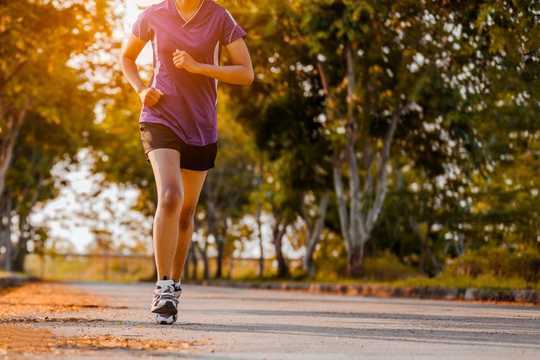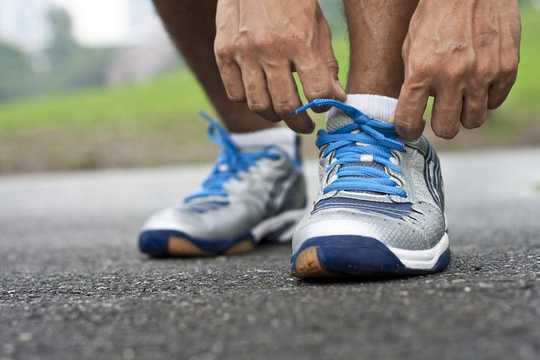
Good news for Australia’s 1.35 million runners and joggers.
It’s free, requires no equipment and the scenery can be stunning – it’s no wonder running is among the world’s most popular sports.
The number of recreational runners in Australia has doubled from 2006 to 2014. Now more than 1.35 million Australians (7.4%) run for fun and exercise.
Our study, published today in the British Journal of Sports Medicine, suggests running can significantly improve your health and reduce the risk of death at a given point in time.
And you don’t have to run fast or far to reap the benefits.
Get The Latest By Email
Our study
Past research has found running reduces the risk of obesity, high blood pressure, high cholesterol, disability, type 2 diabetes, heart disease and cancer.
It also improves aerobic endurance, heart function, balance and metabolism.
These are important components of your overall health status. So, it would be reasonable to assume participation in running increases longevity. But the previous scientific evidence on this has been inconsistent.
Our review summarised the results of 14 individual studies on the association between running or jogging and the risk of death from all causes, heart disease and cancer.
Our pooled sample included more than 230,000 participants, 10% of whom were runners. The studies tracked participants’ health for between 5.5 and 35 years. During this time, 25,951 of the participants died.
When we pooled the data from the studies, we found runners had a 27% lower risk of dying during the study period from any cause compared with non-runners.
Specifically, running was associated with a 30% lower risk of death from heart disease and a 23% lower risk of death from cancer.
More isn’t necessarily better
We found running just once a week, or for 50 minutes a week, reduces the risk of death at a given point in time. The benefits don’t seem to increase or decrease with higher amounts of running.
This is good news for those who don’t have much time on their hands for exercise. But it shouldn’t discourage those who enjoy running longer and more often. We found even “hardcore” running (for example, every day or four hours a week) is beneficial for health.

Run as fast and as far as you feel comfortable. Ekapong
Nor do the benefits necessarily increase by running at high speeds. We found similar benefits for running at any speed between 8 and 13 km/h. It might be that running at your own “most comfortable pace” is the best for your health.
But keep in mind there are risks as well
Running may lead to overuse injuries. These occur as a consequence of repeated mechanical stress on the tissue without sufficient time for recovery.
A history of injury and a longer duration of activity increase the risk of overuse injuries.
You can minimise the risk by avoiding uneven or hard surfaces, wearing appropriate footwear, and trying not to suddenly increase the pace or duration of running.
There is always the risk of sudden death during exercise, but this occurs very rarely.
Importantly, we found the overall benefit of running far outweighs the associated risks. Shorter duration and lower pace of running will further reduce the risks.
Tips for beginners
Start slow and gradually increase the pace, duration and weekly frequency. Set your aim at 50 minutes a week or more, and run at a comfortable speed. Be persistent, but don’t let yourself run out of steam.
The benefits will be similar, regardless of whether you do it in one go or in multiple sessions spread across the week.
If you don’t like running alone, consider joining a running group or an organised event such as parkrun. Running in a group can increase your motivation and provide a fun social experience.
It can be hard to start running, but it shouldn’t be too hard. If you don’t like running, don’t force it; there are more than 800 other interesting sports to choose from. The benefits of many other sports (such as swimming, tennis, cycling and aerobics) are comparable to the ones we found for running.![]()
About the Author
Željko Pedišić, Associate Professor, Victoria University
This article is republished from The Conversation under a Creative Commons license. Read the original article.
books_exercise








